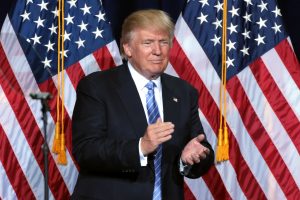
President Donald Trump is now less likely to achieve his economic policy goals. Between the Democrat minority causing a stir over the Mexican border wall and the Republicans moving slower than expected to repair the Affordable Care Act and institute corporate tax cuts, investors should now reconsider the tailwinds that blew into the market with Trump.
Barclays Capital has pushed back the timing and reduced the size of the anticipated fiscal stimulus and also reduced the drag from anti-trade policies in our forecast. There is more likely to be a fix rather than a repeal to NAFTA in favor of a bilateral trade deal with Mexico and Canada. Moreover, Trump’s appointment of a pro-China ambassador signals that he is not going to be antagonistic all day long with the Chinese. So for those who thought free trade was dead, it’s time to reconsider that and start trying to picture what fair trade might look like instead.
“We continue to believe the administration would like to achieve both policies, its ability to do so has been diminished by the difficulty in repealing and replacing the Affordable Care Act, the ongoing legal struggles over immigration policy, and the distraction of the Russia investigation,” say Barclays economists led by Rob Martin in New York. “The administration continues to spend time and political capital in ways we did not anticipate.”
Investors are losing hope on tax reform. Barclays says that there is little common ground between the administration, the house, and the senate. The Paul Ryan border adjustment tax plan which would mandate an across-the-board 20% trade tariff is unlikely to get the 51 votes it needs to pass in the senate. Last week, Trump said he planned to release a new federal budget plan, but until that is out, the market is likely to trade sideways to lower following this year’s rally. The senate has yet to propose any specific plans on repealing and replacing the ACA, and despite Ryan and Senate leader Mitch McConnell saying they’re on board the Trump train, there has been little evidence of that from a market perspective. As a result of this disagreement, Barclays no longer thinks a tax plan “of any sort” is likely in 2017 and has pushed it out to 2018, a mid-term election year! Yikes…
Barclays’ first quarter GDP tracking estimate ended last week at 1.8% quarter-over-quarter, seasonally adjusted, after a short-lived increase to 2% in their previous week’s forecast.
Barclays is also convinced the Fed hikes rates in March.

